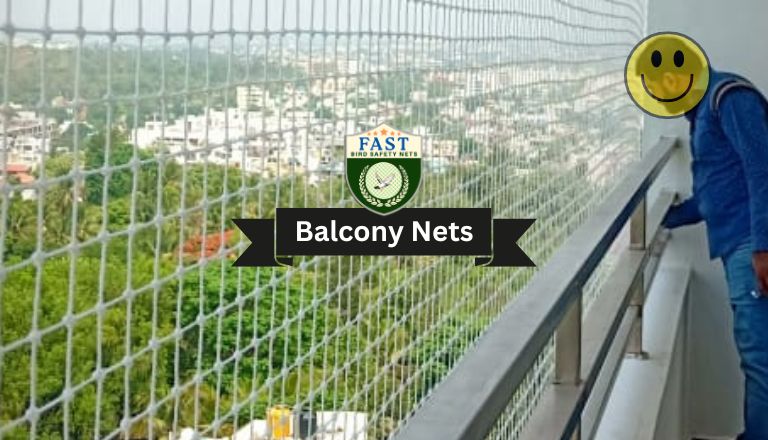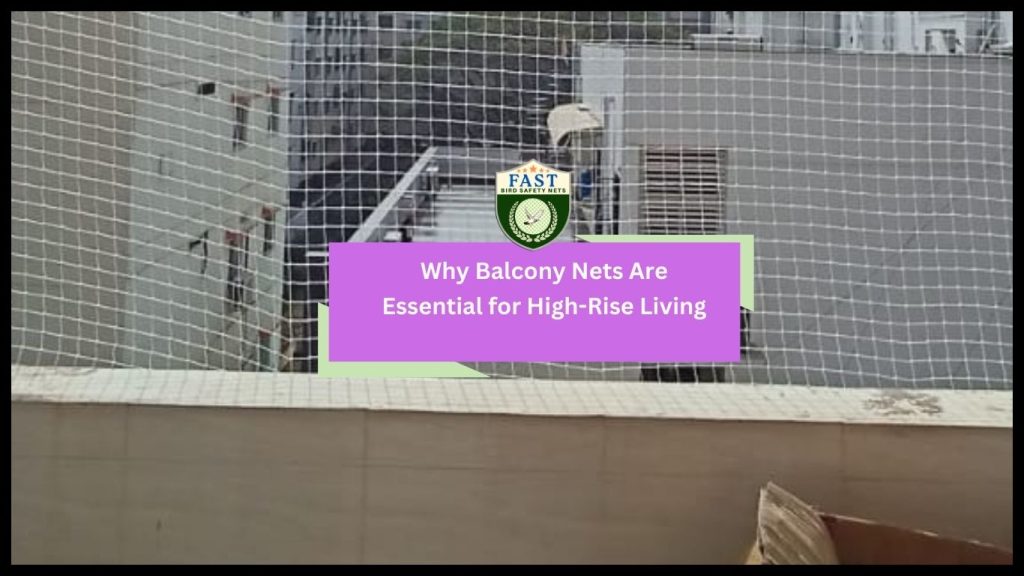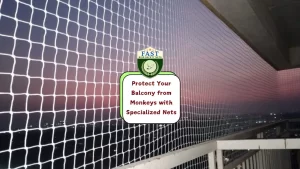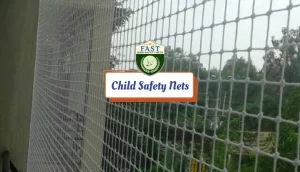Living in a high-rise apartment comes with many perks, from stunning views to convenient amenities. However, high-rise living also presents unique challenges, particularly when it comes to balcony safety. In this article, we explore why balcony nets are essential for high-rise living, providing both safety and peace of mind for residents.

1. Preventing Accidental Falls: Protecting Residents of All Ages
One of the primary reasons why balcony nets are essential for high-rise living is their ability to prevent accidental falls. Balconies in high-rise buildings can pose a significant risk, especially for children and pets who may be tempted to climb or lean over the railing. By installing balcony nets, residents can create a secure barrier that prevents falls and ensures the safety of everyone in the household.
2. Safeguarding Against Bird Intrusions: Maintaining a Clean and Pest-Free Environment
Another important benefit of balcony nets in high-rise living is their ability to safeguard against bird intrusions. Pigeons and other birds are common in urban environments and can quickly become a nuisance, leaving behind droppings and nesting materials that detract from the beauty of balcony spaces. Balcony nets act as a deterrent, preventing birds from roosting and nesting while maintaining a clean and pest-free environment for residents to enjoy.
3. Enhancing Privacy: Creating a Personal Retreat
In densely populated areas, privacy can be hard to come by, especially on balconies overlooking neighboring buildings. Balcony nets provide an added layer of privacy, allowing residents to enjoy their outdoor space without feeling exposed to prying eyes. Whether relaxing with a book or entertaining guests, balcony nets create a sense of seclusion and intimacy that enhances the overall living experience in high-rise buildings.
4. Protecting Against Debris and Wind: Maintaining a Safe and Comfortable Environment
High-rise buildings are often exposed to strong winds and inclement weather, which can result in debris being blown onto balconies. Balcony nets serve as a barrier against debris, preventing objects from entering the space and posing a risk to residents below. Additionally, balcony nets can help to mitigate the effects of wind, creating a more comfortable environment for residents to enjoy outdoor activities without being buffeted by strong gusts.
5. Childproofing for Peace of Mind: Ensuring the Safety of Young Residents
For families with young children, balcony nets are essential for childproofing high-rise living spaces. Children are naturally curious and may be drawn to balconies, putting them at risk of accidental falls. Balcony nets provide a reliable safety measure, giving parents peace of mind knowing that their children are protected from potential hazards. With balcony nets in place, families can enjoy the benefits of high-rise living without compromising on safety.
6. Preserving Views and Aesthetics: Maintaining the Beauty of Balcony Spaces
While safety is paramount, balcony nets also play a role in preserving the views and aesthetics of high-rise living spaces. Unlike bulky barriers or unsightly barricades, balcony nets are discreet and unobtrusive, allowing residents to enjoy uninterrupted views of the surrounding skyline or landscape. Additionally, balcony nets come in a variety of colors and styles, allowing residents to choose options that complement their building’s architecture and enhance the overall visual appeal of balcony spaces.
Conclusion:
In conclusion, balcony nets are essential for high-rise living, providing residents with safety, privacy, and peace of mind. From preventing accidental falls to safeguarding against bird intrusions and debris, balcony nets offer numerous benefits that enhance the overall living experience in high-rise buildings. By investing in balcony nets, residents can create a secure and inviting outdoor space where they can relax, entertain, and enjoy the stunning views that come with high-rise living.






